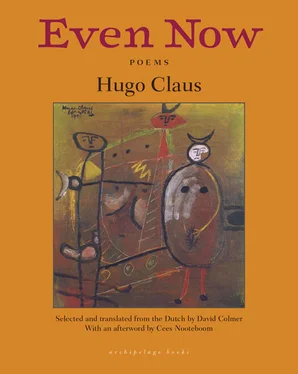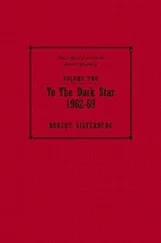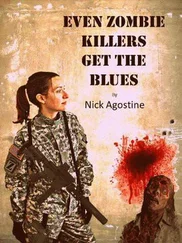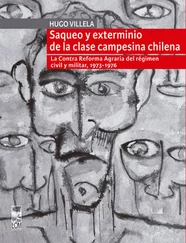With a spiral like a trumpet of redemption
In the Jerusalem of my room.
No house too black
For me to live in
No morning too bright
For me to wake up in
As in a bed
That’s how I live and watch in this house
Between night and morning
Walking on fields of nerves
And digging my nails into every
Uncomplaining body that approaches
Saying chaste words like
Rain and wind apple and bread
Dark and viscous blood of women
Where later radishes and mignonette will flower
In May that is
In a garden by the tracks of a country train
The wind
Is freezing now in December
And in that wind without light without shepherds without birds
Without any chance at all a foal has frozen to death
I’ve brought it here and put it under glass
I gaze away the days and hours
(That pass me by on the wide path
Of this existence which reasonably
We tread in sin with no great deeds)
And wait until thankful and thawed
The foal looks up and speaks its first word.
from Tancredo Infrasonic [1952]
We know neither bread nor meat
We sleep on leaves that turn to compost for our stony land
Our houses have no windows
And in our village there are 14 dwarves and 30 idiots
It rains and our levees leak
It doesn’t rain We pray and our earth stays dry
Like our skin
Like our throats that swell and crack
He who is our father is our lover
And our mothers die young
Shame is our portion
Disgrace our daily meal
Our faces are rank with weeds
We look into your camera We are real
And you are right to say, “They are Las Hurdes.”
A gaunt song a dark thread
Land like a sheet
That sinks
Springtime land of milk and farms
Willow-wood children
Feverish summer land when the sun
Spawns its young in the corn
Golden enclosure
With the deaf-and-dumb farmers at their dead hearths
Praying to God to “forgive us
His trespasses against us”
With the fisherman burning in their boats
With the mottled animals the frothing women
Who sink
Land I dawn in you My eyes are shards
I am in Ithaca with holes in my skin
I borrow your air when I speak
Your bushes and lindens concealed in my words
My letters are West Flanders: dune and polder
I drown in you
Land you are a gong in my skull and at times
Later in ports
A conch: May and beetle Dark bright
Earth.
A morning like always your house is empty
We count and one by one the days
Step into the cage
One sees I see you see
The hidden animals in the cool mirror see
This keeps it buried
The knife that rusts the blood that clots
The bricks porous the milk sour
One says you say
With a blinded voice a frozen gesture
Bye
Bye dear children bye.
from The Oostakker Poems [1955]
Bitter tastes the herb of memory.
Artillery, chunks of phosphorus,
Chalky stubble turnips surround the house and who
Is not watching there, unchaste sentinels waiting for the sign
Of the burning bush, of the horn,
Of the helmeted weathercock of hate?
One step and monkeys start swinging, slithering,
Sliding in on fingers,
Forcing entry into my resting blood. Living there swiftly,
Living there slowly. Until it burns in the hay of all words,
Until it burns in the bygone field, the drowned days and
Their fermenting corn.
The singer is not free
But fast and scornful and skimming the peaks like a pond.
He is not free because his transfixed cascade
And worm-eaten wood resound in his throat, tongue and mouth.
Let loose in his skin, this house,
The singer greets neither cuckoo nor bird catcher
Nor the furtive watchers in the low country.
The singer is his song.
There is no me, no me but in your earth.
When you cried out your skin shivered
And my bones caught fire.
(My mother, imprisoned in her skin,
Changes by the measure of the years.
Her eyes are pale, escaped from the urging
Of the years by looking at me and calling me
Her joyful son.
She was no bed of stone, no feverish beast,
Her joints were a litter of kittens,
But my skin stays unforgivable to her,
The crickets in my voice unmoving.
“You have outgrown me,” she says slowly,
Washing my father’s feet, then falling silent
Like a woman without a mouth.)
When your skin cried out my bones caught fire.
You laid me down, I can never bear this image again,
I was the welcome but murderous guest.
And now, in manhood, I am a stranger to you.
You see me approaching and you think, “He is
The summer, he shapes my flesh and keeps
The dogs in me alert.”
While you die on your feet every day, not with me,
Apart, there is no me, no me but in your earth.
Turning inside of me, your life is lost, you won’t
Come back to me, I cannot recover from you.
Dancing or defeated,
Imprisoned in human warmth, we are already slowing
In the thickets of disinclination, in the contaminated fields,
Following on the heels of the mutilated, who whisper.
Their lips dry in the sun, the late sun.
We hear the dusk, we hear
The daily rattle from the scaffold,
We hear the flayed cub, we hear
The Jew burning in the bush and the crippled nun,
The judge’s sisters, god-fearing and voluptuous,
The heathens in the park, the raven shooters and the crusaders.
We hear them all.
A beak eats out of our mouths.
A tropic encircles our blood.
And under the linden, dewy in its shade,
The father lies for days, days on end, unswayable,
Watching his worn-down children.
Between clouds and royal ferns
The mares will ride tonight in the white field
Growing whiter.
Between thorns and rhododendrons the farmers beat
The children who came too soon.
And where the black iron maiden
Subdues me
The tower shudders, the holy signs tremble.
Listen:
“I am the fatal mother, desire me,
implore me, awaken in my sun — I
Will be with you till your breath fails.”
Listen: “You will not heal but live
On the edge of my life.
In sand, you will acknowledge me.”
In a harbour
That breathes like a woman,
Not restlessly but endlessly,
Her body flutters,
And where she swells all buttons snap,
All skins peel.
Where she swells I surrender, foundering in her bucking
Boats, her rising triumph,
Her sinking, slackening, sailing inland sea.
1
Hair roaring with laughter,
Seagull eyes, a pouch on her belly,
A mother or another traitor,
Who knows this scorching woman?
Her nails come close to my wood,
Her tainted claws awaken my skin,
She blares in my hair like a hunting horn.
Читать дальше












